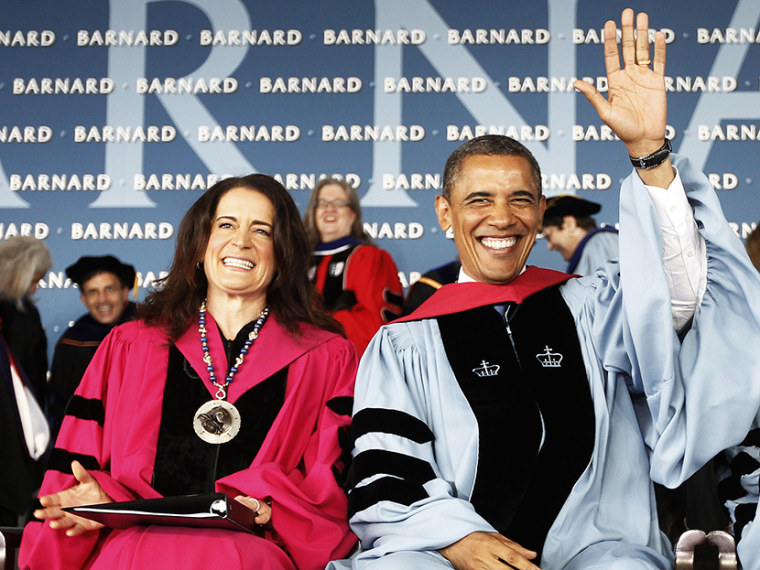It’s a strange moment for men and women's rights--and especially men calling themselves feminists. Not long ago, Eliot Spitzer said he considers himself a feminist, although both feminists who oppose prostitution and feminists who oppose prosecuting prostitution would beg to differ. In The New Yorker this week, an attorney for one of the young men found to have raped a girl in Steubenville, whose defense was, in part, that the victim was “a party girl,” identified as “very much a feminist.” And the president of the United States, who explicitly ran as a feminist ally last year, seems poised to choose as chairman of the Federal Reserve a man notorious for alienating women (Larry Summers) over a highly-qualified woman (Janet Yellen).But it's not all queasiness. In fact, it’s in that very, so-far-dismaying dispute over the Federal Reserve that I see reasons for optimism. Because the truth is, women can’t pull everything off without at least some participation from the other half of society.The nation’s economic and political commentators, still predominately male, are suddenly sounding like they paid rapt attention to the recent national debate over female leadership, reignited at an unprecedented scale by Sheryl Sandberg’s Lean In. Today, Paul Krugman wrote on The New York Times op-ed page that Summers’ defenders had launched one “whisper campaign whose sexism is implicit, while the other involves raw misogyny." (Contrast that with some of the pseudofeminism that has plagued that space lately). Ezra Klein has logged multiple columns calling out sexism against Yellen; in The Atlantic, Matthew O’Brien wrote that Yellen’s numerous qualifications weren’t “good enough for some reason. And that reason sounds pretty sexist.” On New York magazine’s site, Jonathan Chait detected a “whiff of masculine gender panic” in the opposition to Yellen. And here at msnbc, Tim Noah argued that “recent economic history is largely the story of Team Girl being right but getting ignored by Team Boy, which is wrong–but which has more power, and is therefore able to impose its bad choices on an ever-more-regretful nation.” If such analyses become as commonplace as they’ve been since the Yellen-Summers throwdown went public, maybe we’ll see fewer women felled by the double standard and more of us in charge.
Related: Things that look like feminism but aren't
The feminist movements of the twentieth century were launched in part out of disappointment that male-led progressive movements--for abolition, for civil rights, against the Vietnam war--didn't, in practice, seek equal justice for the women among them. That myopia is by no means behind us (remember "Hot Chicks of Occupy Wall Street"?), and I'm not proposing a victory parade or the doling-out of cookies, but let's give credit where credit is due. And it’s not just in the debate over Yellen and Summers. An unscientific sample from my reading list this week is full of men stepping up on all sorts of gendered topics that are usually the provenance of female writers: Mychal Denzel Smith writing in The Nation about Sybrina Fulton that “we have a bad habit of acting as if black women exist only as props in the story about black men and it’s time to stop; prominent environmental writer David Roberts’ apology for calling Olivia Nuzzi a “hobag” (which he attributed to a case of “white liberal dude privilege syndrome”); Erik Wemple’s call for CNN to hire a female media critic for its weekend media show, Marc Tracy reporting on pregnancy discrimination at big law firms. Yes, San Diego mayor and long-serving Congressman Bob Filner appears to have been allowed to continue sexually harassing women for years with impunity, and he’s still clinging to office, but as Amanda Marcotte noted in Slate, the condemnation has been fairly universal: “Things have clearly changed a lot in the two decades since the Clarence Thomas hearings, where even male Democratic senators were more interested in defending the old order where women simply had to suffer creepy advances in silence, than they were in keeping a right-wing ideologue like Thomas off the bench.” Maybe this is the soft bigotry of low expectations, but those low expectations were founded on real past experiences of supposed allies falling short.Being a guy who does his part against institutional sexism and misogyny--it's a little like being a white person who tries to do her or his part against racism--means daily work. It means by learning from mistakes, doing a lot of listening, and doing more than announcing oneself as being on the team.This brings me back to our president. Obama's record on issues that affect women's lives is mostly sterling (with the exception of some frustrating decisions around emergency contraception and a few rhetorical slip-ups), and he has appointed many qualified women, including two as Supreme Court justices. And yet in recent months, he has repeatedly missed the opportunity to appoint an accomplished woman where few have been previously represented--whether as secretary of defense, CIA director, or White House chief of staff. Last year, before he successfully earned the votes of legions of women, he told graduating Barnard students, in a fierce defense of women's rights: "Never underestimate the power of your example." He might take his own advice.
